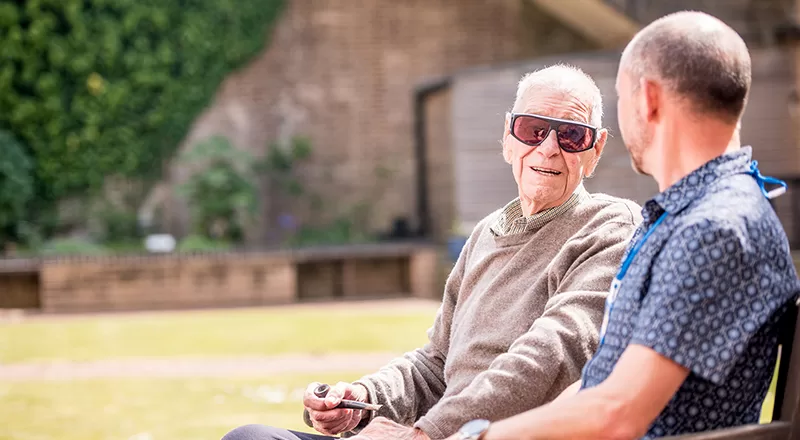‘Promoting positive educational outcomes for children and young people with sensory impairments through a dual approach to acess
In this chapter a ‘dual approach’ to access is outlined to guide educational interventions. This approach promotes ‘access to learning’ complemented with ‘learning to access’ skills that encourage increasing independence. Practical implications and applications of this dual approach are outlined so as to maximise inclusive educational practice and promote positive educational outcomes.
Read More‘Access to learning’ and ‘learning to access’: Analysing the distinctive role of specialist teachers of children and young people with vision impairments in facilitating curriculum access through an ecological systems theory
This article is concerned with analysing the distinctive function and role of the specialist teacher across settings in helping to facilitate an appropriate balance of curriculum ‘access’
Read MoreSupporting the achievement of learners with vision impairment in higher education
This guide has been produced to aid Higher Education (HE) professionals understand howthey can best work with students who have vision impairment, to facilitate a positive andinclusive experience
Read MoreTransition from school to higher education
This chapter focuses upon the transition from school for young people with vision impairment. The authors make a distinction between “access to learning” and “learning to access”. The former focuses upon inclusive practice and environmental adjustments, while the latter focuses upon developing a young person’s agency and independence. It is argued that if we attend… Continue Reading Transition from school to higher education
Read MorePromoting Equitable Access to Education for Children and Young People with Vision Impairment: A route-map for a balanced curriculum
This book argues that inclusive educational systems and teaching approaches should focus upon promoting and sustaining a balanced curriculum. It provides an analysis of how a suitable curriculum balance can be promoted and sustained through the stages of a given educational pathway to ensure equitable access and progression for all learners with vision impairment.
Read MorePromoting a balanced early years curriculum for young children with vision impairment: Developing and sustaining personal agency through a bioecocological systems perspective
This article presents the parameters of a conceptual framework to inform the design of intervention approaches that can help to reduce these barriers. It draws on a dual model of ‘access’, contextualised within a bioecological systems perspective, to examine how young children with vision impairment can establish increasing personal agency through intervention approaches that promote… Continue Reading Promoting a balanced early years curriculum for young children with vision impairment: Developing and sustaining personal agency through a bioecocological systems perspective
Read MoreBalancing inclusive design, adjustments and personal agency: progressive mutual accommodations and the experiences of university students with vision impairment in the United Kingdom
The paper proposes a framework of support for reducing barriers to curriculum access for students with disabilities in higher education (HE), by drawing upon findings from a unique longitudinal qualitative study
Read More“They were questioning whether I would even bother coming back”. Exploring evidence of inequality in “access”, “success” and “progression” in higher education for students with vision impairment
Paper explores and interprets evidence of inequality for students with vision impairment in higher education. Qualitative and quantitative data are analyse the experiences of students with VI.
Read MoreDevelopment of a new curriculum framework for childen and young people with vision impairment: A United Kingdom consultation using the Delphi approach
This article presents the research and development that underpins the Curriculum Framework for Children and Young People with Vision Impairment (CFVI): a new unifying framework that outlines the breadth of support that should be received by children and young people with vision impairment (CYPVI) in the United Kingdom (UK). The study used the Delphi method as a… Continue Reading Development of a new curriculum framework for childen and young people with vision impairment: A United Kingdom consultation using the Delphi approach
Read MoreDeveloping an inclusive learning environment for students with visual impairment in higher education: progressive mutual accommodation and learner experiences in the United Kingdom
Drawing on the findings of a unique longitudinal qualitative study, this article investigates the experiences of 32 young people with visual impairment (VI) in higher education (HE) in the United Kingdom (UK) to explore how well they were able to participate on their courses.
Read More
